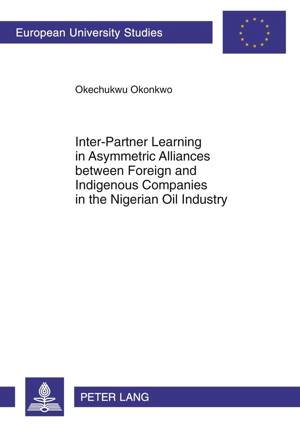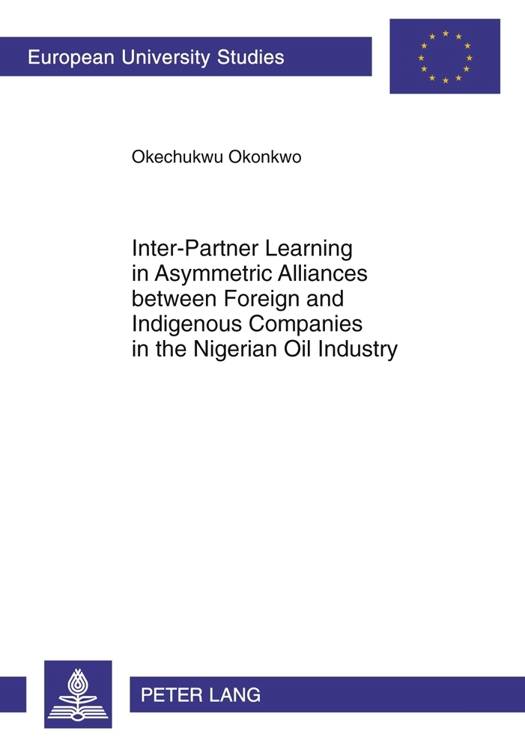
Je cadeautjes zeker op tijd in huis hebben voor de feestdagen? Kom langs in onze winkels en vind het perfecte geschenk!
- Afhalen na 1 uur in een winkel met voorraad
- Gratis thuislevering in België vanaf € 30
- Ruim aanbod met 7 miljoen producten
Je cadeautjes zeker op tijd in huis hebben voor de feestdagen? Kom langs in onze winkels en vind het perfecte geschenk!
- Afhalen na 1 uur in een winkel met voorraad
- Gratis thuislevering in België vanaf € 30
- Ruim aanbod met 7 miljoen producten
Zoeken
Inter-Partner Learning in Asymmetric Alliances Between Foreign and Indigenous Companies in the Nigerian Oil Industry
Okechukwu Okonkwo
€ 92,95
+ 185 punten
Omschrijving
The emergence and growing trend of inter-firm alliances between indigenous oil companies and foreign international oil companies in the Nigerian oil industry has elicited widespread expectations of inter-partner learning and knowledge transfer through the alliances in the industry. However, the asymmetric nature of these foreign-indigenous alliances has also raised the question as to «whether or not» and «how» learning and knowledge transfer takes place in these alliances. Through explorative case study research, this work examines the learning intents and learning capacities of partner companies in selected cases of alliances as well as the types of knowledge they acquired through the alliances. The major objective is to identify the pattern of inter-partner learning and the factors affecting learning in such asymmetric alliances. Based on the empirical findings, relevant recommendations are provided for the managerial practice in the industry and the implications for research are highlighted.
Specificaties
Betrokkenen
- Auteur(s):
- Uitgeverij:
Inhoud
- Aantal bladzijden:
- 227
- Taal:
- Engels
- Reeks:
- Reeksnummer:
- nr. 3379
Eigenschappen
- Productcode (EAN):
- 9783631617816
- Verschijningsdatum:
- 17/02/2011
- Uitvoering:
- Paperback
- Formaat:
- Trade paperback (VS)
- Afmetingen:
- 150 mm x 224 mm
- Gewicht:
- 566 g

Alleen bij Standaard Boekhandel
+ 185 punten op je klantenkaart van Standaard Boekhandel
Beoordelingen
We publiceren alleen reviews die voldoen aan de voorwaarden voor reviews. Bekijk onze voorwaarden voor reviews.









